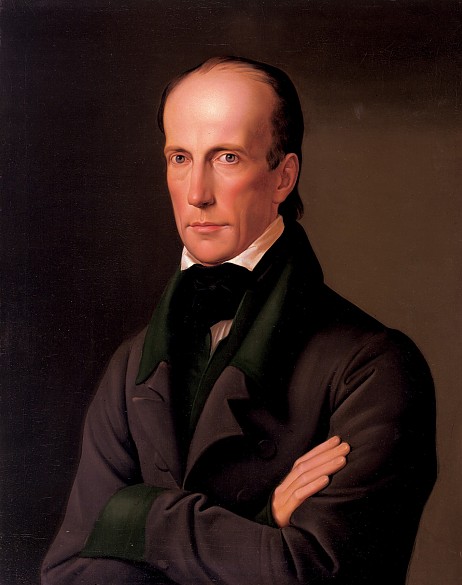The archduke and the postmaster’s daughter
Archduke Johann’s Greatest Love is the title of a sentimental film released in 1950 telling the story of the prince who fought for the love of his life against all the conventions of the time. And in point of fact, the archduke’s life contains all the ingredients for a great love story.
The relationship between Archduke Johann and Anna Plochl (1804–1885), the daughter of the postmaster of the town of Aussee in the Styrian Salzkammergut, began in 1819. Anna was then just fifteen, Johann twenty years her senior.
The relationship that developed proved to be astonishingly resilient, given that circumstances were against the couple. Affairs between members of the imperial dynasty and commoners were hardly a rarity and often endured for many years. It was expected that they should be conducted discreetly and not legitimized, at least publicly.
However, Archduke Johann was determined to legitimize his relationship with Anna. He began cautiously, turning to his brother only four years after it had started and informing the emperor officially of the affair, even though the Viennese court had been whispering about it for some time. Franz gave his approval in principle but revoked it soon afterwards.
It transpired that Johann was insisting on a regular marriage, a demand that impacted like a bombshell at the imperial court. In aristocratic court circles marriage between a member of the imperial dynasty and a commoner was an unheard-of enormity. Emperor Franz and most of the family were strictly against legitimizing the union.
Johann was only permitted to live with his partner as his ‘housekeeper’. In order to preserve Anna’s honour, the relationship was presented to the outside world as abstinent.
In 1829 Emperor Franz suddenly gave permission for the marriage to take place. He had evidently mellowed and wanted to put an end to this anomalous state of affairs. The wedding took place hastily without great ceremony, since it had not been officially announced. It was not until 1833 that Johann was able to acknowledge his wife officially. In 1834 she was raised to the rank of Freifrau (the second-lowest rank within the nobility, approximately equivalent to baroness) and granted the name of von Brandhofen.
The price for imperial consent to the marriage was that Anna and any children resulting from the union would not be recognized as members of the imperial dynasty. The couple’s only child, a son named Franz Ludwig born in 1839, was granted the title of Count of Meran, a name still borne by his numerous descendants. The family’s main residence is at Schloss Schenna near Meran in South Tyrol, an estate that Archduke Johann purchased in 1845.
He is interred in the family crypt at Schenna, together with his wife Anna, who outlived him by 26 years.













